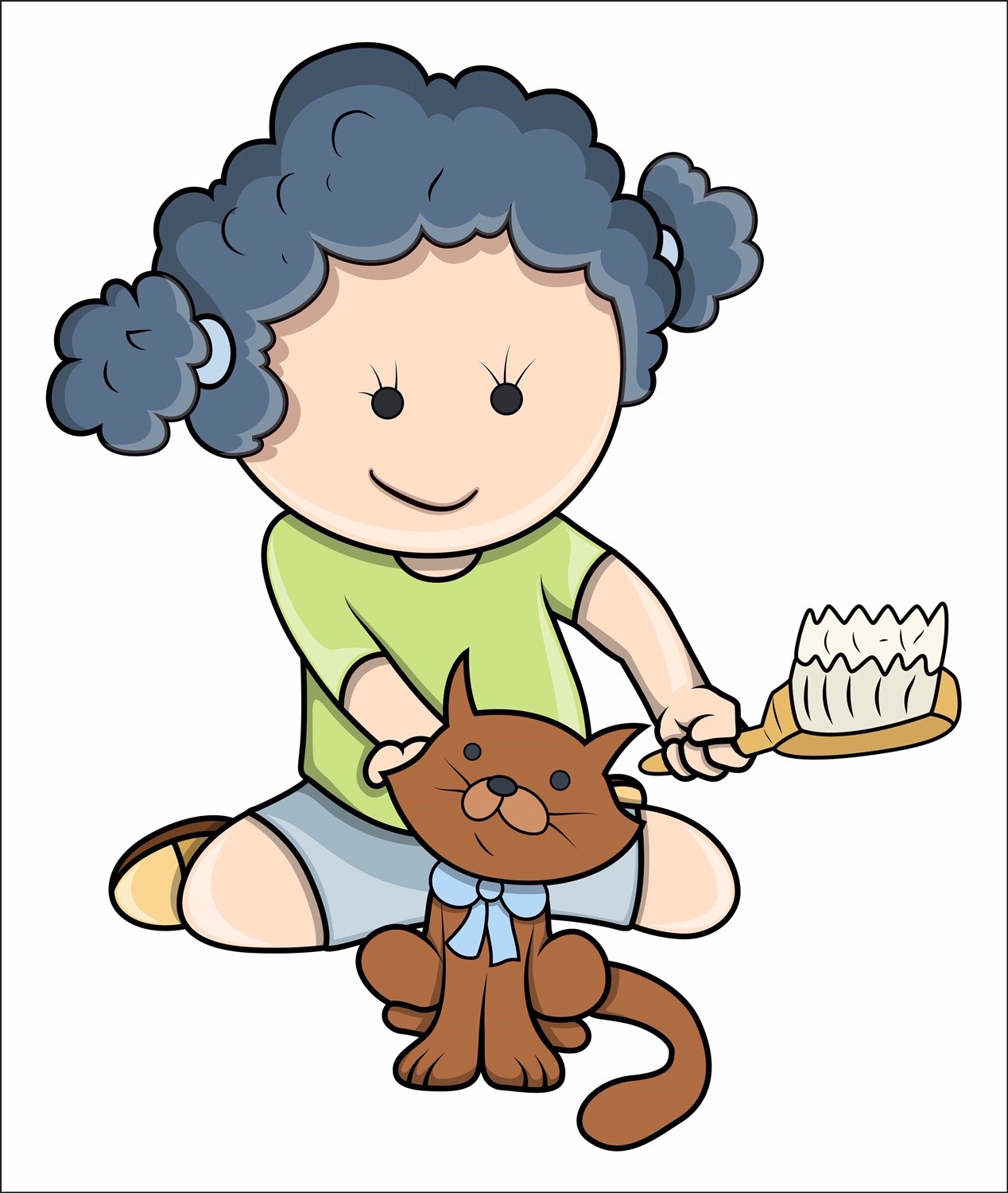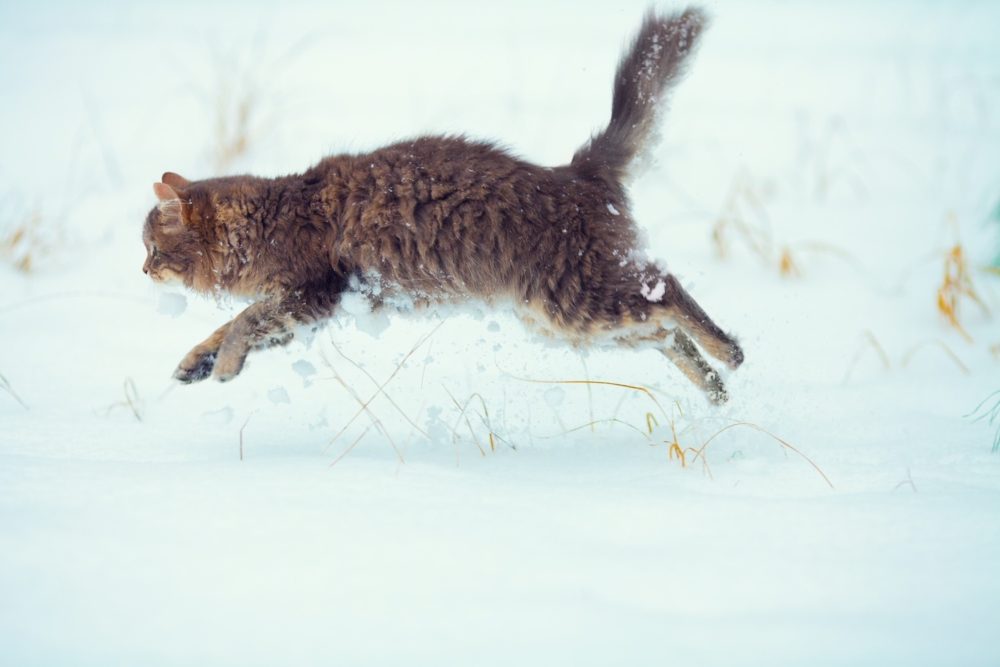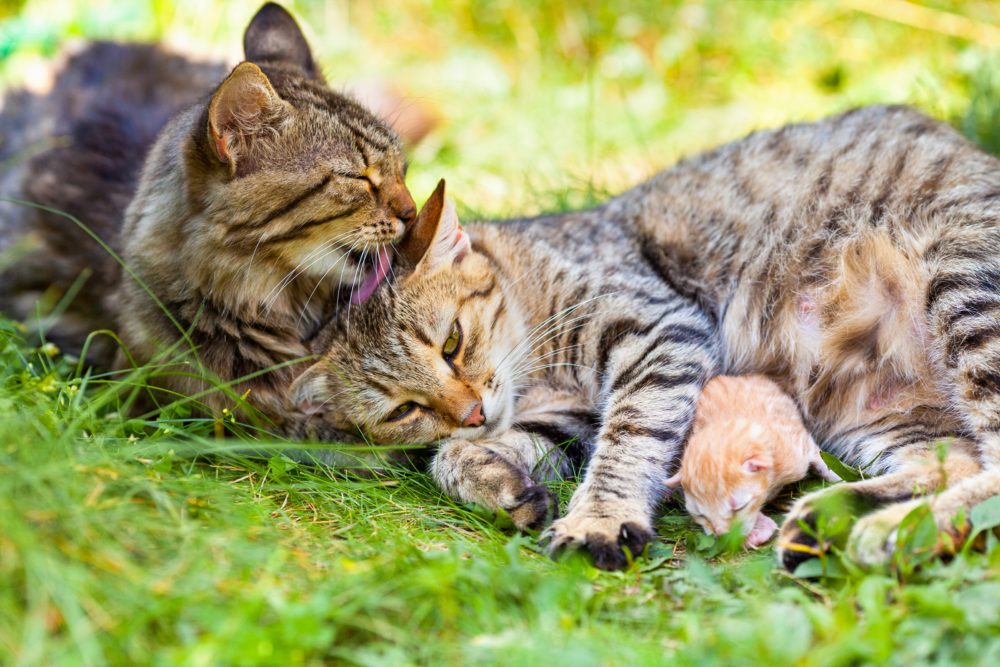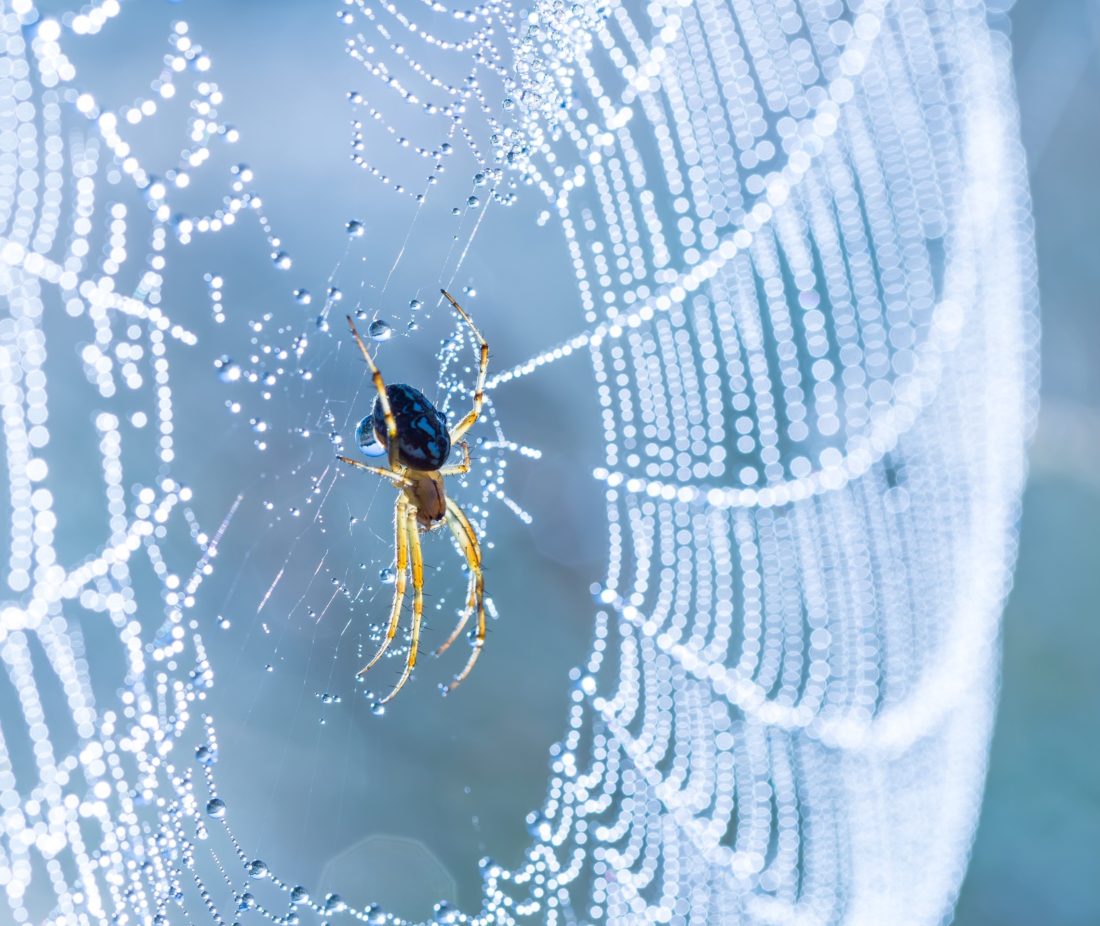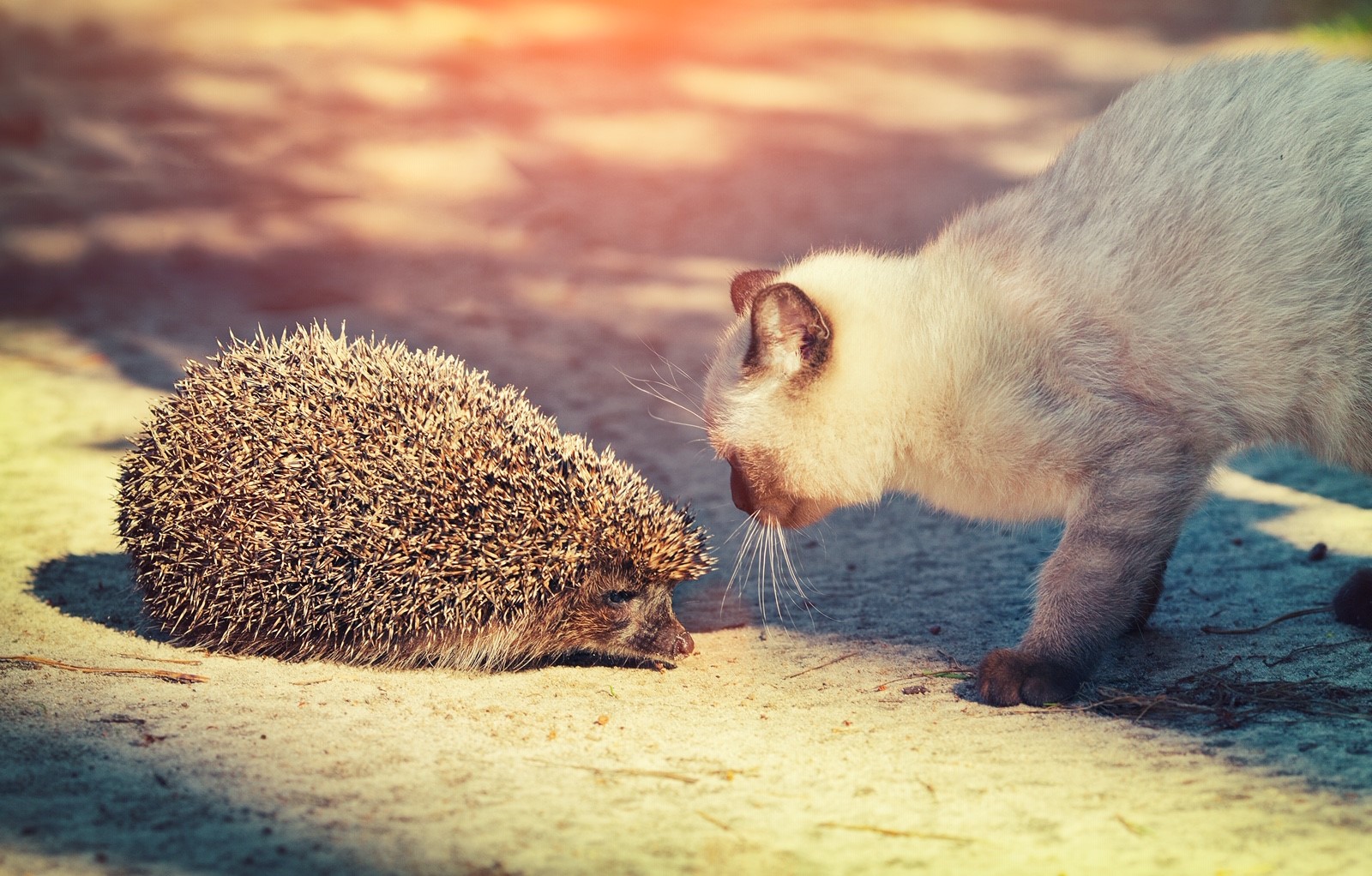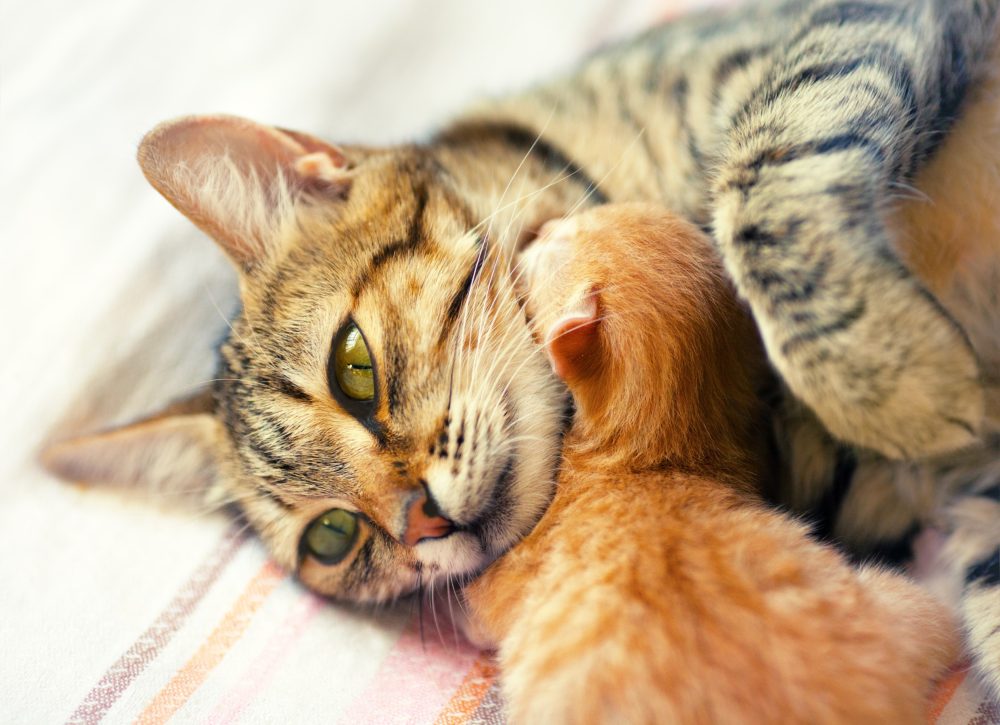
Has my cat eaten her kittens? And helpful ways to support a mother cat
Before Misty, our cat, had her kittens, this question would never have crossed my mind let alone trying to find answers to it! But our cats do like to test us at times as I’m sure many of you will agree. Misty had a smooth, unaided birth and all seemed well with Misty and her two beautiful little kittens. They were safe in their caravan (yes, the cats have their own special caravan!) and all three were settled and happy. But, a few days later, we went into the caravan one morning and the kittens were nowhere to be seen. We couldn’t hear them, couldn’t find them and we searched everywhere. We were confused and getting rather worried as to where on earth were the kittens? One of the family members, jokingly, suggested that Misty was looking a little shifty and could she have eaten them? I was horrified at such a thought but decided to investigate whether this really was an option. Surely not?
The good news is that we found the kittens tucked away in the darkest corner. Something must have spooked Misty and she had moved the kittens to safety. But our research as to whether a mother cat will eat her kitten was rather astounding and sharing our findings will hopefully help another person who has searched, ‘Has my cat eaten her kittens?’
Will a mother cat eat her kittens?
The answer is yes, there are occasions and certain circumstances that will result in a mother cat eating her kittens. As horrific as this may seem, there are many reasons as to why a mother cat will do this. Nature’s priority in the animal world seems to be that the mother must never jeopardize her own health over her young. If this is the case whilst the mother is pregnant or soon after the birth, she may well eat her offspring to regain energy and wellness.
Whilst this seems very alarming and upsetting, it is very rare. A mother cat is more likely to abandon or move her kittens rathe than eat them. It is also most likely to occur in feral cats due to being deprived of food.
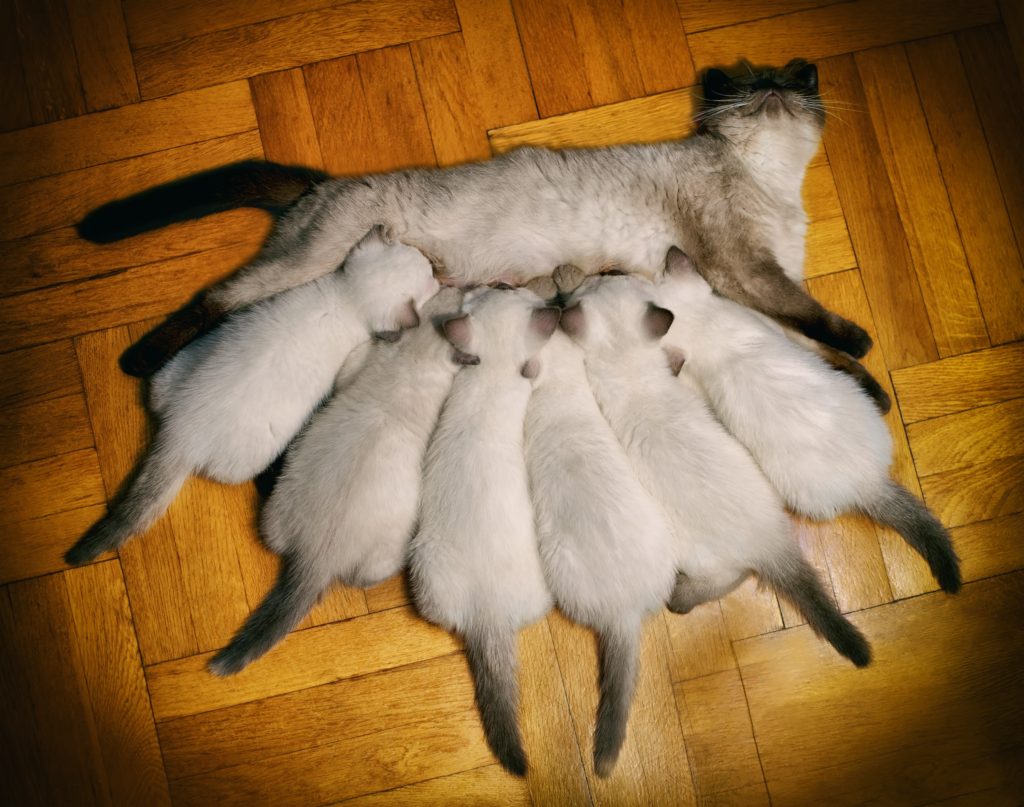
Why would a mother cat eat her kittens?
There are various reasons why a mother cat would be driven to the extreme behavior of eating her kittens. These reasons include:
- A first-time mother cat may find motherhood a little confusing and daunting. In this state of uncertainty, whilst cleaning her newborn kittens the mother cat may chew the tails or feet off her kittens.
- Most animals, and certainly cats, eat the afterbirth. This replaces some of the energy and nutrition that the mother cat loses during the pregnancy and the birth. A mother cat who is ill or undernourished may simply keep eating and end up eating the kittens. She may only eat one or two kittens, just enough to ensure she has ample energy and can supply enough milk to feed and nourish the remaining kittens properly.
- A stressful, or what a cat deems to be an unsafe atmosphere, may cause her to eat the kittens. Too many visitors, even familiar faces, cooing over the cuddly new arrivals may suddenly seem threatening to a new mother cat. She may see this as a danger and will eat her kittens rather than subject them to any dangers. This is more likely to happen to a young inexperienced mother cat.
- In much older cats, a hormonal imbalance can sometimes trigger a lack of bonding with the young kittens and this can result in the mother abandoning the new kittens, or in extreme circumstances, she may eat her kittens.
- Some cats simply do not have a motherly instinct. Whilst some mother cats will react to these feelings by simply ignoring her young, another cat may react to these feelings by eating her kittens simply to get rid of them.
- If one of the kittens is deformed or sick, the cat mother may eat just this one. This is nature’s way of ensuring the rest of the litter are kept healthy and safe. A stillborn kitten may also be eaten by the mother if not removed from the litter.
Will male cats eat newborn kittens?
Although there have been instances where a male cat has eaten kittens, this is also very rare and will only happen in extreme circumstances. Some of these reasons include:
- A male cat with no maternal instincts may simply see the newborn kittens as prey and therefore eat them.
- Feral male cats may eat kittens as a method of controlling the size of his group.
- A male cat may exhibit this behavior to show dominance.
- Whilst lactating, a female cat will not want to breed. A male cat who wants to breed may kill and possibly eat the kittens in order to induce breeding in the female.
Helpful ways to support a mother cat
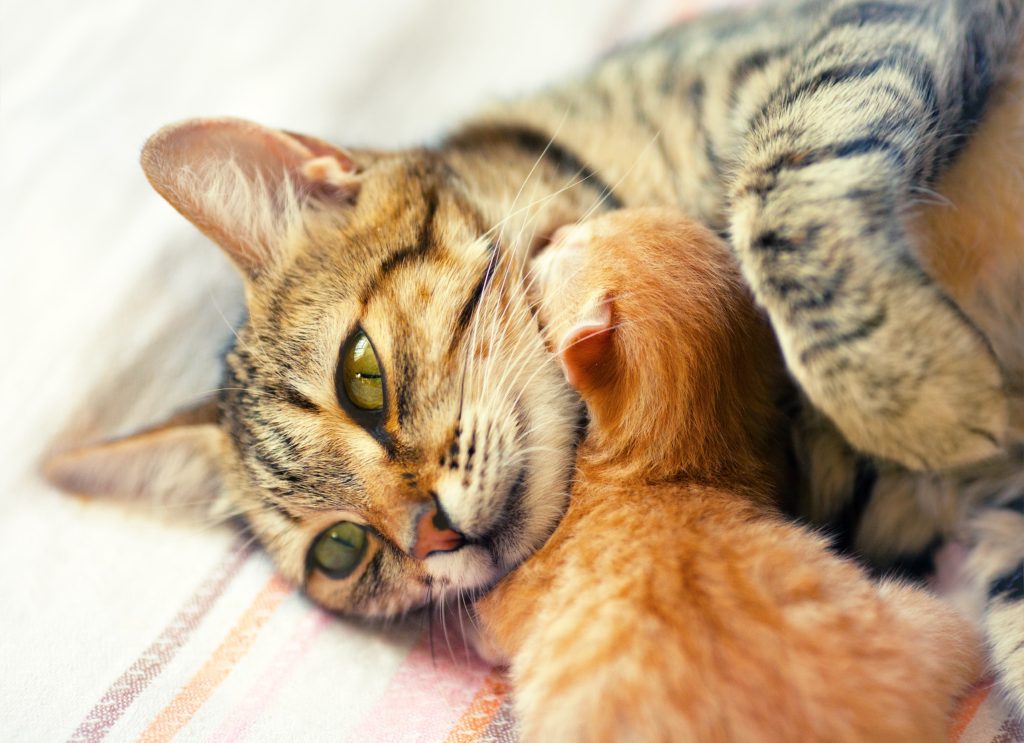 Any concerns regarding your cat’s pregnancy, birth or aftercare for her and her kittens should be checked out with your veterinary. There are many ways you can support a mother cat and her kittens, these tips include:
Any concerns regarding your cat’s pregnancy, birth or aftercare for her and her kittens should be checked out with your veterinary. There are many ways you can support a mother cat and her kittens, these tips include:
Privacy for the new mum and her kittens
The most important tip is without doubt to give the mother cat and her newborns some privacy. They will need somewhere that is quiet, private and clean where other pets in the household cannot access and away from the daily hustle and bustle of the family. Let your cat guide you as to when she is ready to show you her new kittens.
Provide plenty of food and water for your cat.
Quality, highly nutritious wet food is recommended but if she prefers dry food then ensure this is of the same high quality. By looking after mum’s nutritional needs, she will then be in peak condition to nurse her young kittens. A mother cat will feed the kittens herself for the first four or five weeks before the process of weaning can begin.
Clean bedding
In the first few weeks the bedding may get soiled easily. By stacking towels in the bed or box where mum and kittens are settled, it will be easy to remove the top soiled towel leaving a clean one ready underneath. This quick and easy method will ensure minimal disruption.
A dry and warm area
Kittens can get cold very easily therefore ensure the area is nice and warm. A large basket with plenty of towels and blankets is great. She may move her kittens a few times until she feels completely safe, this is completely normal behavior.
Monitor mother and babies
Keep a close eye on mother and kittens and if you have any concerns then contact your veterinary for advice.
Litter tray for mother cat
Keep the litter tray close for mum to use but not too close to her food and water. The kittens won’t need to use the litter tray until they are about four weeks old. Mother cat will simply lick the kittens to encourage them to toilet and she will then lick them clean.
Handling the kittens
It is important to handle the kittens so that they are sociable and tame when they grow up. This can be done from when they are about two weeks old onwards. Do this slowly and cautiously ensuring that mum is happy and feels that her kittens are not in any danger.
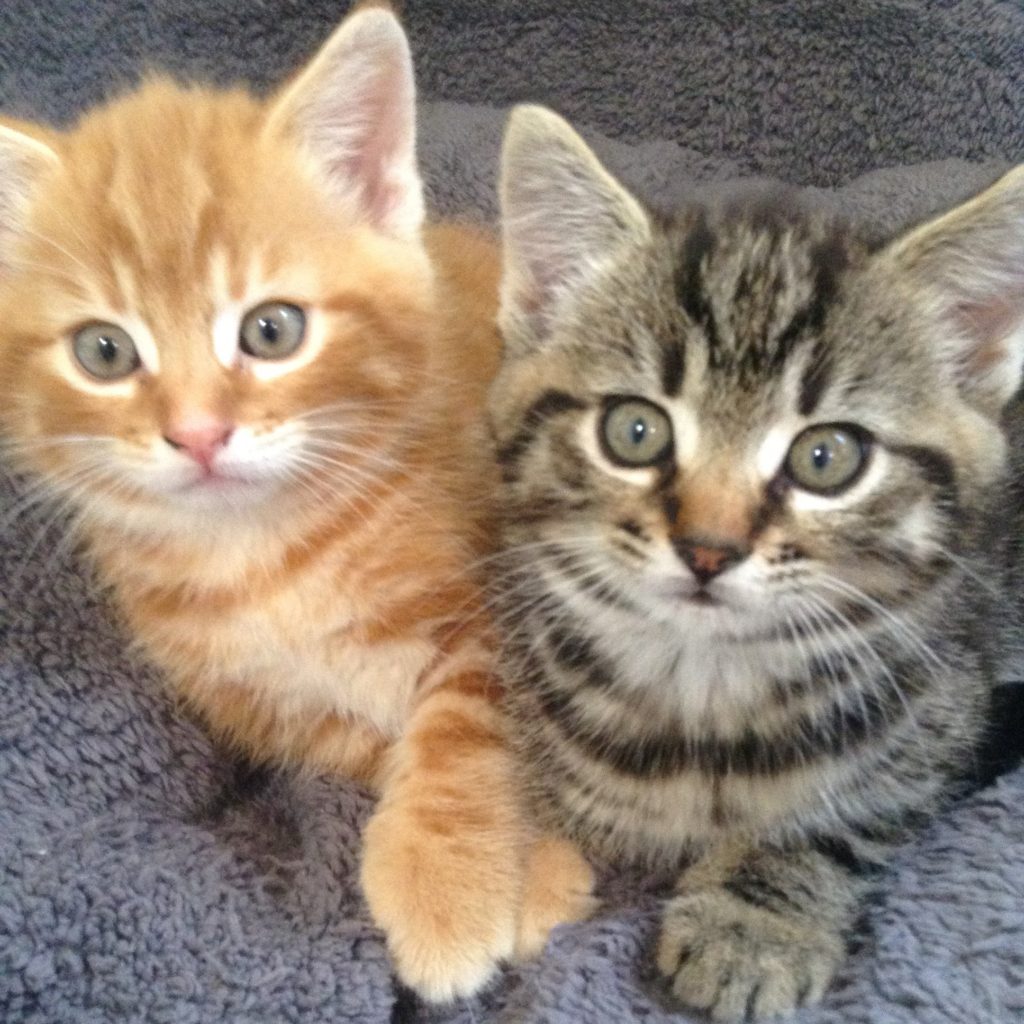
Cats are generally excellent mothers; they instinctively know what to do and protecting and nursing their newborn kittens is their prime focus. Whilst respecting the needs and privacy of mummy cat especially in the first few weeks she will soon share the joys that these new beautiful bundles bring.
Other articles you may find useful:
Can you give arnica to cats and other homeopathic remedies for cats
